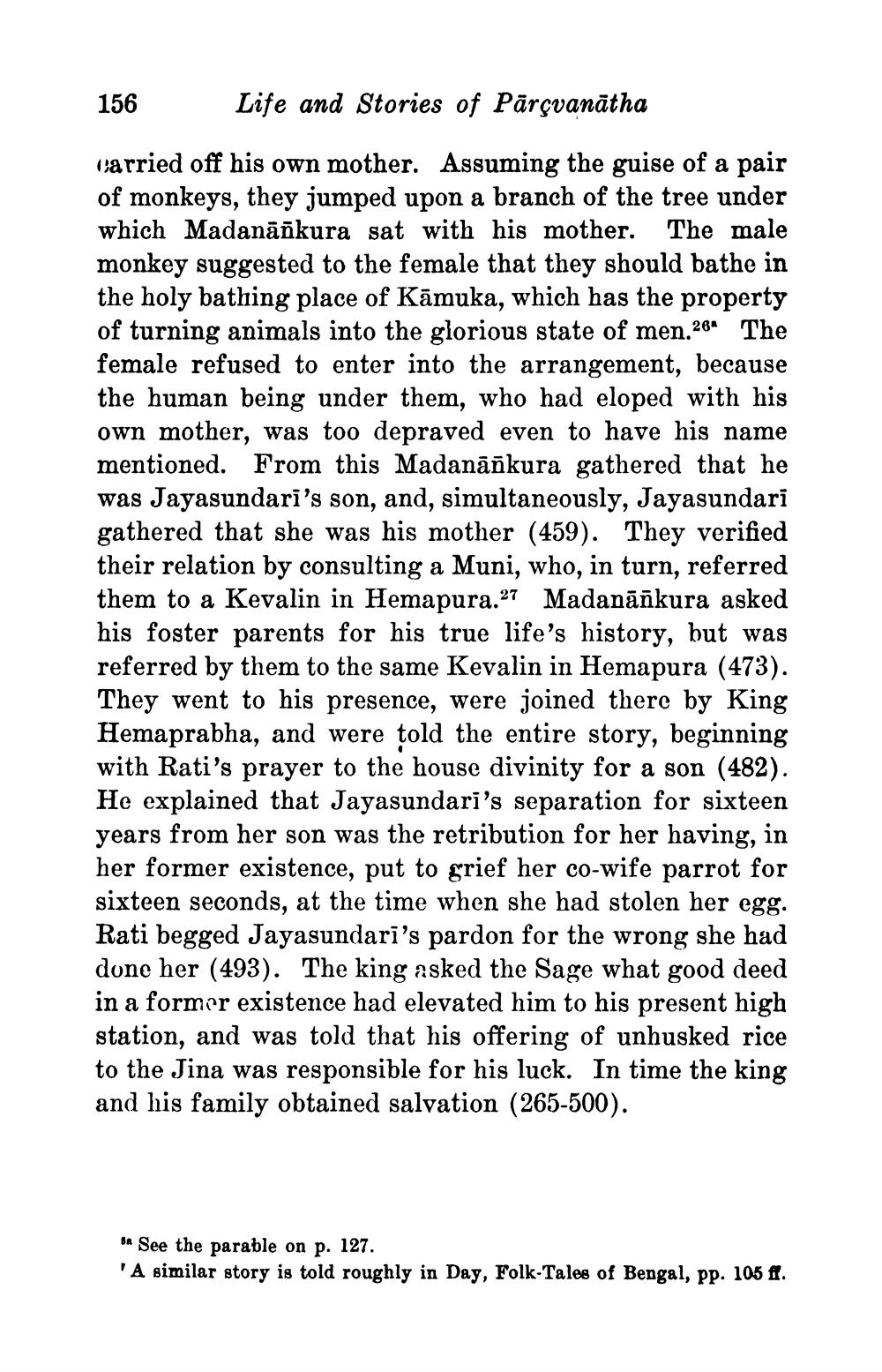________________
156 Life and Stories of Pārçvanātha Warried off his own mother. Assuming the guise of a pair of monkeys, they jumped upon a branch of the tree under which Madanāñkura sat with his mother. The male monkey suggested to the female that they should bathe in the holy bathing place of Kāmuka, which has the property of turning animals into the glorious state of men.28. The female refused to enter into the arrangement, because the human being under them, who had eloped with his own mother, was too depraved even to have his name mentioned. From this Madanāñkura gathered that he was Jayasundari's son, and, simultaneously, Jayasundari gathered that she was his mother (459). They verified their relation by consulting a Muni, who, in turn, referred them to a Kevalin in Hemapura.27 Madanāñkura asked his foster parents for his true life's history, but was referred by them to the same Kevalin in Hemapura (473). They went to his presence, were joined there by King Hemaprabha, and were told the entire story, beginning with Rati's prayer to the house divinity for a son (482). He explained that Jayasundari's separation for sixteen years from her son was the retribution for her having, in her former existence, put to grief her co-wife parrot for sixteen seconds, at the time when she had stolen her egg. Rati begged Jayasundari's pardon for the wrong she had done her (493). The king asked the Sage what good deed in a former existence had elevated him to his present high station, and was told that his offering of unhusked rice to the Jina was responsible for his luck. In time the king and his family obtained salvation (265-500).
Sa See the parable on p. 127. 'A similar story is told roughly in Day, Folk-Tales of Bengal, pp. 105 ff.




